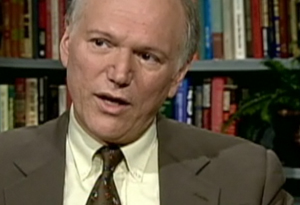| Sun | Mon | Tue | Wed | Thu | Fri | Sat |
|---|---|---|---|---|---|---|
| 1 | 2 | 3 | 4 | 5 | ||
| 6 | 7 | 8 | 9 | 10 | 11 | 12 |
| 13 | 14 | 15 | 16 | 17 | 18 | 19 |
| 20 | 21 | 22 | 23 | 24 | 25 | 26 |
| 27 | 28 | 29 | 30 | 31 |
CATEGORIES
RECENT ENTRIES
BLOG ROLL
Help wanted
 It’s June, and a brand-new group of Chicago graduates is jumping into the job market with ABs and résumés in hand. Career adviser Laurence Shatkin, AM’71, author of The 200 Best Jobs for College Graduates and Great Jobs in the President’s Stimulus Plan, discusses job prospects for the Class of 2009:
It’s June, and a brand-new group of Chicago graduates is jumping into the job market with ABs and résumés in hand. Career adviser Laurence Shatkin, AM’71, author of The 200 Best Jobs for College Graduates and Great Jobs in the President’s Stimulus Plan, discusses job prospects for the Class of 2009:
Before the financial crisis, what were the best jobs out there for new graduates? Have things changed?
Nursing is a very hot field—it was before the economic downturn and it still is now. A lot of high-tech jobs have been booming, and although they took a bit of a hit just like everything in the economy, they’re starting to come back. Systems analysts, computer-network and database managers—those high-tech jobs have been doing very well.
For a typical Chicago grad with a bachelor’s degree, what are some opportunities?
Social and community service managers—these are people who manage agencies that have a social mission. This might be something that someone with a humanities or social-science background might go into. Public relations specialists—people with a flair for writing would find this interesting and valuable. Substance-abuse and behavioral-disorder counselors is an interesting one—people who have empathy and are good at communicating with others. Actually, a lot of people go into this who have a past history of substance abuse, but I wouldn’t recommend that someone develop an addiction in order to prepare for it [laughs]. In business, jobs for accountants, auditors, and loan officers are expected to come back once the economy comes back.
What sources do you use to predict future job growth?
The best projections we’ve got in this country are from the U.S. Department of Labor. They have an Office of Employment Projections, and that’s what I rely on for these projections of job growth and job openings.
How will the recession force new graduates to adjust their expectations?
There are fewer openings, and so the competition is going to be greater. There’s even going to be some competition from people in their 60s who normally would be retiring now, whose 401(k)s have taken a real plunge and so they have to go on working longer. Roughly 50 percent of graduates got jobs in their field last year, according to the National Association of Colleges and Employers. This year it was down to half of that, so it’s a big difference.
Will salaries be lower?
I don’t think salaries will be dramatically lower, but they may be a little bit lower because employers have their pick of candidates. The main problem is going to be finding a job, and a lot of people are going to have to compromise and take something outside of their field. Some may start up a new business—throughout American history, this has been one of the ways innovation happens. Some people will go to graduate school and build up skills and stay out of the job market for awhile. Yet another thing is to go into some service opportunity such as the Peace Corps, Teach for America, or AmeriCorps, which have expanded quite a bit. I can’t overemphasize how valuable those are for building experience that employers are going to value.
You have a BA, MA, and PhD in English. Do you have any special advice for English majors?
I would say keep your options open. Don’t think that you have to do what you see your professors doing out there. Realize that your skills can be applied in a number of different occupations or pursuits. And it also helps to have a broad range of interests. Know something about technology, for example. Know something about economics and the way the world works and not just literature and the humanities.
Should everyone’s back-up plan be to move in with Mom and Dad?
That can be a back-up plan, but sometimes it doesn’t work out very well. Sometimes there are conflicts. Sometimes Mom and Dad are down on their luck too, and it isn’t feasible. I’ve heard of moms and dads who are moving in with their kids.
I would say in general about careers, it helps to have a back-up plan. While you’re still in school, you should have a Plan B in mind. When you applied to a college, you probably had a safety school that you applied to, and you might also have a safety career in mind, and take a few courses so you’ll be ready for that one as well.
RECOMMENDED LINKS
- Video: "Grads Turn to Uncle Sam" (CBS Evening News with Katie Couric, CBS News, May 2009)
- Audio: "Stimulus Jobs: Where They Are, How To Find Them" (All Things Considered, National Public Radio, Feb. 15, 2009)
RELATED READING
- "Earn More in a Nontraditional Job" (Career Laboratory blog, Fast Company, May 28, 2009)
- "Talking Salary with Potential Employers" (Examiner, May 14, 2009)
- "Grad Job Outlook Grim" (Washington Times, Apr. 13, 2009)
- "Six Ways to Find a Stimulus Job" (Yahoo! Hot Jobs, Apr. 2009)
June 1, 2009
